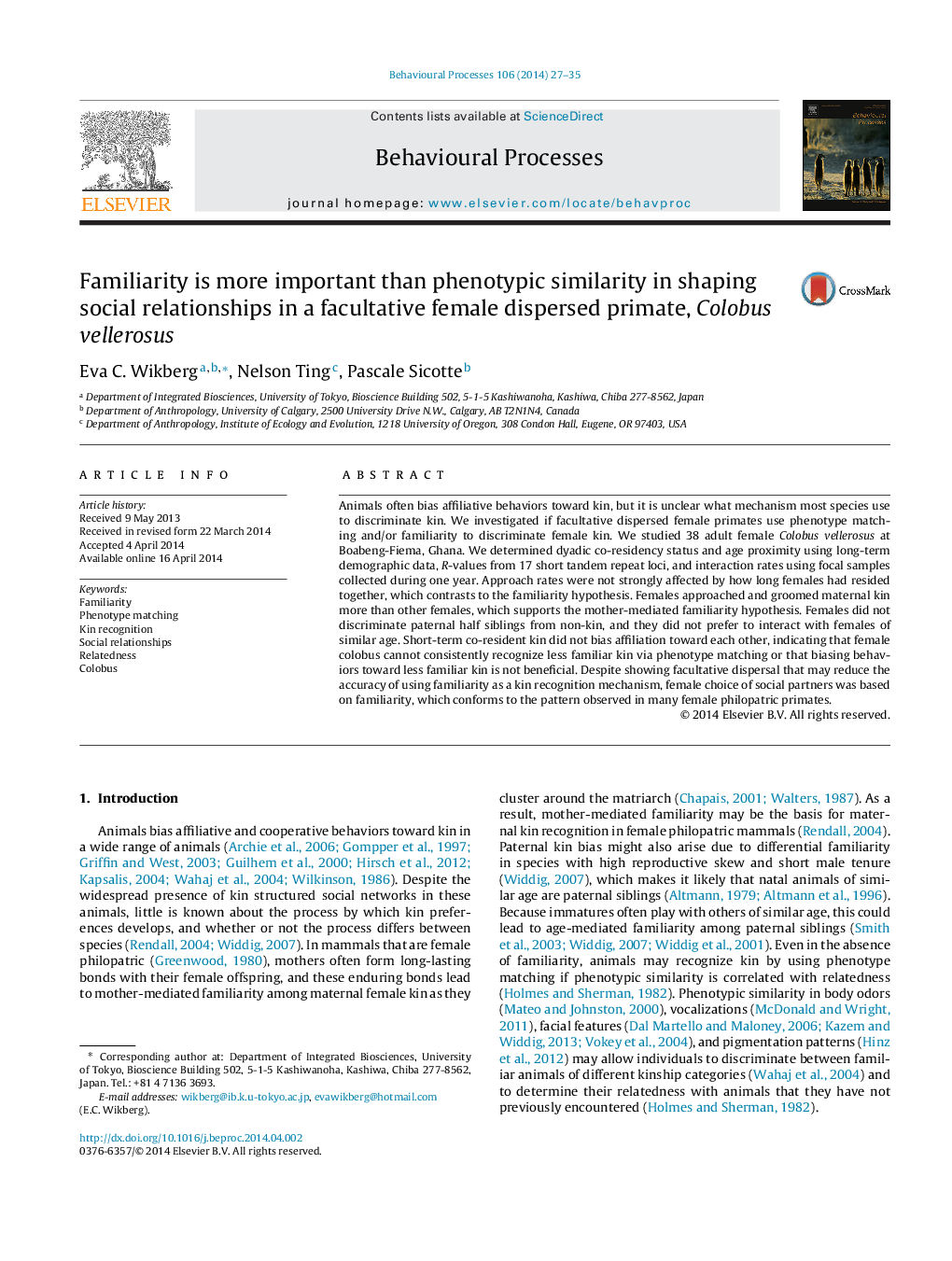| کد مقاله | کد نشریه | سال انتشار | مقاله انگلیسی | نسخه تمام متن |
|---|---|---|---|---|
| 2426654 | 1553173 | 2014 | 9 صفحه PDF | دانلود رایگان |

• We studied kin recognition in facultative dispersed primates.
• This dispersal pattern reduces the accuracy of using familiarity to recognize kin.
• Despite this, only mother-mediated familiarity positively affected affiliation.
• Females may be unable to use phenotype matching to recognize kin.
• Alternatively, females do not benefit from biasing affiliation to unfamiliar kin.
Animals often bias affiliative behaviors toward kin, but it is unclear what mechanism most species use to discriminate kin. We investigated if facultative dispersed female primates use phenotype matching and/or familiarity to discriminate female kin. We studied 38 adult female Colobus vellerosus at Boabeng-Fiema, Ghana. We determined dyadic co-residency status and age proximity using long-term demographic data, R-values from 17 short tandem repeat loci, and interaction rates using focal samples collected during one year. Approach rates were not strongly affected by how long females had resided together, which contrasts to the familiarity hypothesis. Females approached and groomed maternal kin more than other females, which supports the mother-mediated familiarity hypothesis. Females did not discriminate paternal half siblings from non-kin, and they did not prefer to interact with females of similar age. Short-term co-resident kin did not bias affiliation toward each other, indicating that female colobus cannot consistently recognize less familiar kin via phenotype matching or that biasing behaviors toward less familiar kin is not beneficial. Despite showing facultative dispersal that may reduce the accuracy of using familiarity as a kin recognition mechanism, female choice of social partners was based on familiarity, which conforms to the pattern observed in many female philopatric primates.
Journal: Behavioural Processes - Volume 106, July 2014, Pages 27–35